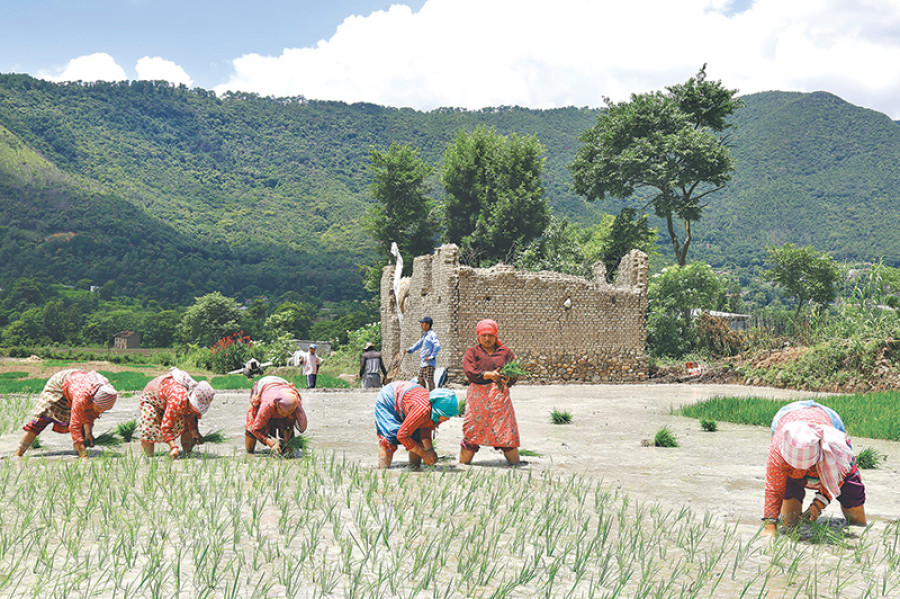Money
Farmers receive no subsidy from govt
The farmers involved in spring paddy cultivation in the district have not received any subsidy from the government. Earlier, the Agriculture Ministry used to launch a subsidy programme to help farmers boost the production of spring paddy. But the local government this year scrapped the subsidy programme.
Ganesh Chaudhary
The farmers involved in spring paddy cultivation in the district have not received any subsidy from the government. Earlier, the Agriculture Ministry used to launch a subsidy programme to help farmers boost the production of spring paddy. But the local government this year scrapped the subsidy programme.
As a result, only small a number of farmers are involved in cultivation of the spring crops. The spring paddy is preferred by the farmers whose farms lie in an area prone to flooding. During monsoon the paddy planted in the area are generally washed away by the flood. Therefore, farmers usually plant spring paddy to ensure food security in the flood prone area.
Until last year, the government was providing Rs5,000 for every individual planting spring paddy on 0.5 hectares of land and was giving 50 percent subsidy on seed, according to Kamal Chaudhary, chief of agriculture department of Bhajani Municipality of Kailali district. “But there is no such subsidy this year,” said Chaudhary.
Now, the municipality will be launching training programme for the farmers of the region. Bhajani Municipality is home to largest pocket of area in the district where spring paddy is cultivated. “As the municipality is a flood affected area, majority of the farmers have no other option but to plant spring paddy,” said Chaudhary. “They must grow spring paddy to feed themselves round the year.”
Without subsidy, the production of the crops is likely to go down. According to farmers of Bhajani, less will be interested to plant spring paddy without subsidy. “The cost of production of spring paddy is high and without subsidy we will face a loss,” said Gopi Ram Chaudhary.
Earlier, the government was prioritising the production of spring paddy to address the short supply of the cereal. The National Agriculture Research Centre (Narc) has recommended seed varieties like Chaite-2, Chaite-4 and Hardinath-1.
Similarly, the International Rice Research Institute had expanded the distribution of the improved paddy seeds to 21 districts that are considered to be food insecure. The paddy can be grown on dry as well as wet land, according to the institute.
The programme was launched in eight districts in the Tarai and 13 districts in the hills. The districts are Banke, Bardiya, Kanchanpur, Kailali, Dang, Kapilvastu, Jhapa, Morang, Baitadi, Doti, Dadeldhura, Achham, Surkhet, Dailekh, Jajarkot, Rolpa, Salyan, Pyuthan, Palpa, Arghakhanchi and Gulmi.




 9.89°C Kathmandu
9.89°C Kathmandu.jpg)















